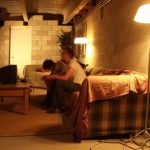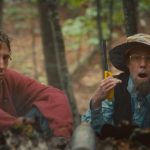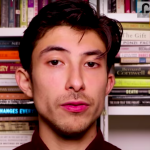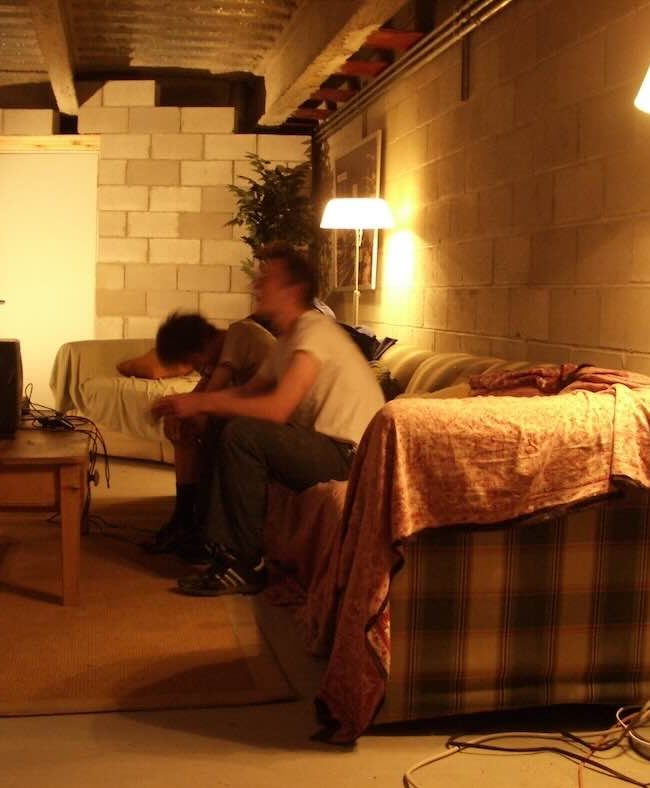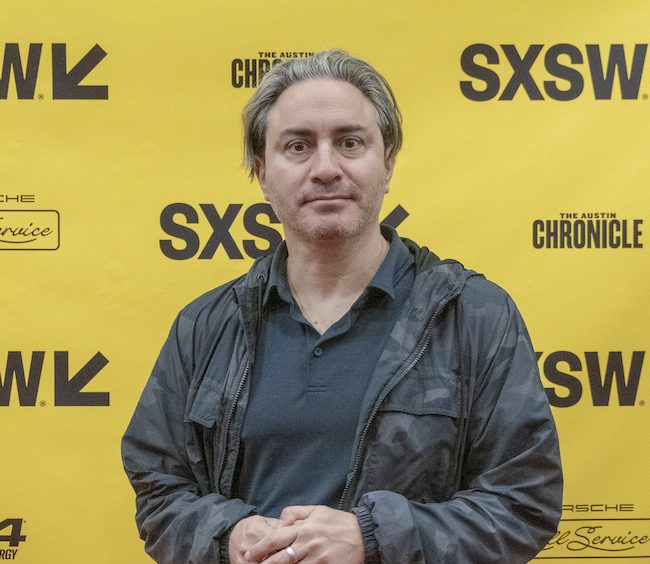A conversation with Kei Pritsker (THE ENCAMPMENTS)
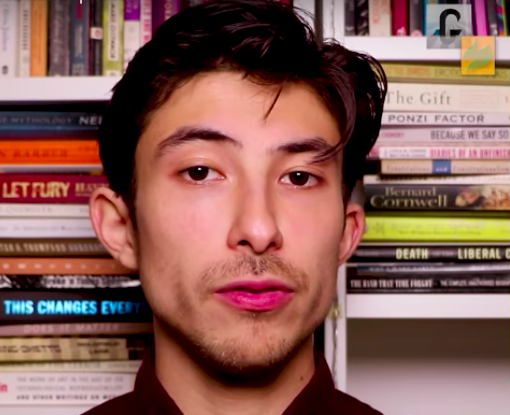
Nearly a year ago, universities across the world turned into war zones, with students, persevering with morale, camping out in tents against the cold, rain, and even snow; with threats of the national guard storming their encampments; and with riot gear police arresting student protestors.
The chants heard across the world were for universities to divest from ties to Israel, for school administrators to acknowledge the loses in Gaza, and for a liberated Palestine. Reminiscent of the anti Vietnam War protests of the 1970s, students were leading a movement that was shaking the world.
In their daring documentary, The Encampments, filmmakers Kei Pritkser and Michael T. Workman investigate the strength behind the student-led Pro-Palestine movement despite the forces that be silencing their cause.
Following an exclusive New York opening run, The Encampments, opens nationwide on April 4.
With the film’s extended nationwide release coinciding with the film, October 8, discussions of the Israel-Palestine conflict and its repercussions on campuses worldwide will be reignited in the path of the encampments’ anniversaries.
Hammer to Nail: When did you become aware of and involved in the Pro-Palestinian movement?
Kei Pritsker: 10 years ago I joined the SJP [Students for Justice in Palestine] at my school, George Washington University. It was the 2014 assault on Gaza – Operation Protective Edge as Israel calls it. I saw videos of it, of Israeli airstrikes in Gaza City, of the Israeli Airforce blowing up entire apartment blocks.
One of the first people I heard talk about Palestine at length was Abby Martin, who’s a journalist with the Empire Files. She’s really been one of the most outspoken American journalists on Palestine. It was through watching her reporting, the reporting of Palestinian journalists like Dena Takruri, watching Al Jazeera, that I got the perspective that wasn’t being reported in mainstream news. So many people don’t see what’s happening in Gaza, but the second you realize even some of the surface level details of what is happening, it’s like, how is this not being talked about more. Palestine was really one of the first issues that woke me up to deeper truths; the lights came on, so to speak.
HtN: How did this anger transition into making this film?
KP: I’ve always felt drawn to other SJPs – really anything related to Palestine – so when the SJP and the JVP (Jewish Voice for Peace) were banned at Columbia University, I saw that happen and I went over to report on the protests. I met some of the leaders there and we kept in touch, so when they were setting up the encampment in April, I got there before some of the mainstream press did. The students also knew my reporting; I’m a journalist with Breakthrough News, and I’m very outwardly Pro-Palestine. I don’t hide the fact that I support Palestine. A lot of journalists these days operate by saying they’re leaving their opinions out of the story, or doing journalism from nine to five and advocacy after hours. We don’t really do that at Breakthrough, we do the opposite approach. We say all storytelling comes from a perspective and has a bias. There’s no way to tell a story without bias and I think the worst thing people do is pretend they don’t have a bias. At Breakthrough, we embrace that, and we actually want to tell the side of the story that’s not being told by the mainstream media – i.e. the Palestinian side, the Arab side, the side of anti-racism, the side against colonialism.
HtN: In addition to gaining the trust of student protestors to include footage of the encampment, how did you acquire the footage of Gaza shown in the film?
KP: We had been working with a journalist and producer, Ruwaida Amer, who works in Gaza. She’s been filming for several outlets as a stringer, as a freelancer. We had hired her to work on a number of packages about life in Gaza, so we already had this connection. I think she reached out to us first and was like, “I’m in Gaza filming if you want to buy any footage, we’re happy to sell it.”
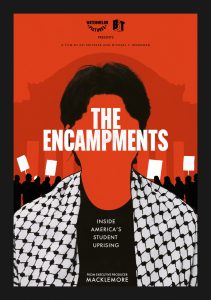
We were always planning on releasing it [the footage of the encampment] as a news package, but we were looking at the footage and there was so much. And the lies about the encampment were so, so vitriolic and twisted that we felt like we really wanted to do something bigger. We were sitting on a trove of footage that completely countered and completely blew the narrative that the media and the pro-Israel lobby and the politicians were spinning. So, we were like, to Ruwaida, “Hey, we have a much bigger project for you. Would you want to work with us on it?” And she did.
HtN: What would be your response to critics of the Breakthrough Media – and this film’s – philosophy of owning one’s bias in reporting?
KP: I think it’s such a funny thing to say to us because that perfectly characterizes what the mainstream media was doing to the encampments. They are telling one side of the story. The way the media has treated Palestine as an issue predates October 7, predates 2023. To any of these critics saying, “You’re coming with an agenda,” tell the media that. Tell CNN, tell FOX News, tell MSNBC.
In fact, we saw our work as a way of balancing the media landscape, to actually give the students a chance to share in their own words why they were protesting. The media was saying the students were protesting because they hate Jews, because they’re edgy, woke kids, because they don’t want to go to class, because they’re dumb. If you’re going to make all these characterizations about the students, let’s hear what the students actually have to say for themselves, let’s hear it from their own words and their own voices. We asked the students, and what every student told us was that they were protesting because they are sick and tired of seeing the genocide of the Palestinian people. We don’t care about class, we don’t care about finals, none of that matters if every single university in Gaza is being destroyed.
These students are unbelievable and unshakeable in their commitment to the Palestinian cause. Everyone is being told these students are just kids, it’s just a fad, it’s a phase, they just want to be radicals, they just want to be edgy. But then you hear them in their own words and you see the fanatical devotion, the unbreakable spirit. They’re in the cold, they’re in the rain, they’re sleeping out over night, they’re going toe to toe with riot police, they’re being teargassed. And you realize these students are so, deeply passionate. They are sacrificing everything for people they don’t even know.
HtN: There is a bitter timeliness to the film, with the recent arrest and detainment of student protestor, Mahmoud Khalil, who is a central part of this film. Was this threat of deportation present while making the film?
KP: The fact that he was the first one, too, was just really shocking. I think we all knew on paper that it was a possibility, but it was never something we really treated like it was going to be a real possibility we needed to plan for. It never really fully hit us until it happened and it was devastating.
HtN: What last minute changes were put into the film upon his arrest?
KP: We added the question where he’s asked, “What would happen if you were deported?” and we updated the end cards to reflect the fact that he was abducted. But when I was there at the press conference, that question probably didn’t even stick out in my mind and I don’t think anyone there really thought anything of it when he was asked.
The film was already finished when he was abducted, but when we saw him get arrested, we were like, wow, we are sitting right now on a trove of footage of this very person explaining in great detail what his actual motivations were, why he actually cares so deeply about Palestine. We actually know the truth and we felt an absolute responsibility to accelerate the release because Trump’s campaign against pro-Palestine students, against free speech, it’s all built on this central lie that the students are being motivated by hatred. And we were sitting on a film that blows all of that out of the water.
HtN: What last minute changes were put into the film upon his arrest?
KP: We wanted to release on the one year anniversary of the encampment, April 17, but the majority of us actually wanted to release it in the fall when students were going back to campus. We were planning a big impact campaign to really build up the film, build up excitement.
HtN: The film ends on a text card reading, “Rather than stopping the movement for Palestine, the repression reignited it.” With this in mind, how do you Trump Administration’s campaign against student protestors impacting the movement?
KP: I see the repression as an indication of where we are on the trajectory towards a free Palestine. What I think the repression really tells us, is that they [the Trump Administration] have conceded, that they have lost the battle for hearts and minds, they have lost the narrative war. They are repressing us, they are trying to censor us, and they are trying to imprison us because they are losing. That is what authoritarian regimes do. When they lose the propaganda war, when they lose the narrative war, when they lose the battle for public opinion, what tool do they have left besides outright violence, repression, and censorship? That’s where we are in the timeline right now. During the encampments, students all said in unison, not only do we support Palestine, we don’t care if you expel us, we don’t care if you suspend us, we don’t care if you take us to jail, we don’t care if you take away our degrees, we are going to give everything for Palestine. That was death blow.History is one long arc of being being bold, being brave despite the repression, despite the fear. And I think, very soon, anger is going to overcome the fear.
– Kaitlyn Hardy

